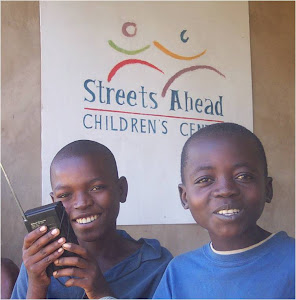I was interested to see what had changed in 18 months. Kigali has changed a lot. There are new pavements, grass and banana trees have been planted down the middle of the main roads, new buildings have popped up, there are signs for lots of international conferences… But this seems to be as far as it goes, bar some improvement in the electricity supply and the completion of the road through the east.
The development appears predominantly urban and of benefit to the wealthiest. The vulnerable and the rural areas seem to be suffering. The first newspaper I picked up had yet another article about the arrest and detention of street children and other ‘idlers’ on the basis they ‘mess up the city’.
Human Rights Watch was calling for the closure of the central detention centre for such persons, which they alleged was illegal and whose conditions were inhumane. Just as in Iraq, it is illegal to be homeless. Genius. There’s also been a big drought in eastern Rwanda which has ruined crops, led to the displacement of a lot of children onto the streets, and created a food shortage and inflation in staple goods prices.
On top of this, in urban areas local government have started demanding that anyone with a home below a certain standard must sell up (to the government or to people who can afford to build expensive homes) and move to the villages. In Kayonza (where one of the centres is) they have declared that only 2 houses are acceptable. The rest must be demolished. In Rwamagana, the newly declared regional capital, huge swathes of homes are to be demolished to make way for people moving out of Kigali, new government buildings and businesses.
Outwardly, things seem calm and peaceful still. In reality, the gacaca (village court trial process for the tens of thousands of genocidaires) is well underway and stirring up tensions, there are political power struggles underway, people are afraid to speak openly, and the government remains rigidly authoritarian…
Rwanda has just hosted the NEPAD delegation who will report soon on its assessment of Rwanda’s progress. That should be interesting. NEPAD is a network of African countries which have agreed to peer evaluate each other on progress towards each countries’ 2020 development goals. It’ll be interesting to see what they make of the changes in the last couple of years. Sadly, there are few African leaders that aren’t self interested, power crazy, nepotistic, pillagers intent on being life-Presidents, so the idea of them assessing each other isn’t very promising in my mind. Furthermore, the fact African leaders won’t stand up and condemn the likes of Mugabe, doesn’t make me very hopeful they’ll have the objectivity and will to hold each other to account. I also fear they’ll be blinded by the new buildings and roads and overlook the more substantial and pertinent issues and the people who have been pushed out of sight because they ‘mess up the city’.
The development appears predominantly urban and of benefit to the wealthiest. The vulnerable and the rural areas seem to be suffering. The first newspaper I picked up had yet another article about the arrest and detention of street children and other ‘idlers’ on the basis they ‘mess up the city’.
Human Rights Watch was calling for the closure of the central detention centre for such persons, which they alleged was illegal and whose conditions were inhumane. Just as in Iraq, it is illegal to be homeless. Genius. There’s also been a big drought in eastern Rwanda which has ruined crops, led to the displacement of a lot of children onto the streets, and created a food shortage and inflation in staple goods prices.
On top of this, in urban areas local government have started demanding that anyone with a home below a certain standard must sell up (to the government or to people who can afford to build expensive homes) and move to the villages. In Kayonza (where one of the centres is) they have declared that only 2 houses are acceptable. The rest must be demolished. In Rwamagana, the newly declared regional capital, huge swathes of homes are to be demolished to make way for people moving out of Kigali, new government buildings and businesses.
Outwardly, things seem calm and peaceful still. In reality, the gacaca (village court trial process for the tens of thousands of genocidaires) is well underway and stirring up tensions, there are political power struggles underway, people are afraid to speak openly, and the government remains rigidly authoritarian…
Rwanda has just hosted the NEPAD delegation who will report soon on its assessment of Rwanda’s progress. That should be interesting. NEPAD is a network of African countries which have agreed to peer evaluate each other on progress towards each countries’ 2020 development goals. It’ll be interesting to see what they make of the changes in the last couple of years. Sadly, there are few African leaders that aren’t self interested, power crazy, nepotistic, pillagers intent on being life-Presidents, so the idea of them assessing each other isn’t very promising in my mind. Furthermore, the fact African leaders won’t stand up and condemn the likes of Mugabe, doesn’t make me very hopeful they’ll have the objectivity and will to hold each other to account. I also fear they’ll be blinded by the new buildings and roads and overlook the more substantial and pertinent issues and the people who have been pushed out of sight because they ‘mess up the city’.




No comments:
Post a Comment